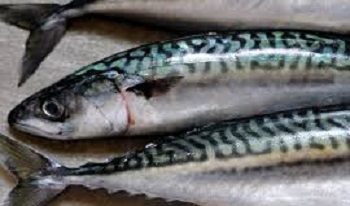Mackerel (Scombridae) Health Benefits and Side Effects
The Mackerel (Scombridae) Health Benefits and Side Effects
Mackerel is a common name given to many different species of pelagic fish, mostly from the family Scombridae and they include chub, Atlantic, Indian and Spanish mackerel. The scientific name is Scomber scombrus
They are found in both temperate and tropical seas, mostly living along the coast or offshore in the oceanic environment.
Related Articles >>>>
- How to Differentiate Between Crayfish, Prawn, and Shrimp
- Swai Fish: Should You Eat or Not Eat It? Clean or Unclean
- Cod Fish ~ Easy Lemon Garlic Baked Cod Fish Recipe
- Is Catfish Good For Weight Loss? Health Benefits
The Mackerel Family
There are presently sixteen members of the Scombridae or Mackerel Family, three from the Atlantic, eight from the Pacific, and five present in both the Atlantic and Pacific Oceans.
The Mackerel or Scrombridae Family includes bonitos, mackerels, and tunas, which are some of the most key food fishes and common game fishes in the world.
However, the family has 54 universal species that have been placed in 15 genera that are found globally in tropical and temperate waters.
Fishing is so much more – it’s a lifestyle. If you’re passionate about making healthy food choices, the information below will give you the assurance to enjoy and recommend mackerel.
Mackerel is one of the most widely consumed fish varieties globally. Health-conscious people can consume this fish in baked, steamed, or grilled form.
The fish is packed with omega-3 fatty acids and a high amount of proteins, consuming this fish offers a wide range of health benefits.
Health Benefits – What Makes Mackerel So Good?
The fish is a nourishing fish for everybody. It has high levels of necessary fatty acids, which develop stamina and assist recovery after exercise while helping to maintain beautiful skin.
Scomber scombrus fish is high in coenzyme Q10, antioxidants, and omega-3 fats. Coenzyme Q10 assists in getting rid of cancerous agents attached to cells.
Antioxidants can help lower cancer risks by eradicating free radicals in your body; omega-3 fats can aid in preventing prostate, breast, renal, and colon cancers.
Other Benefits Include:
- Prevents heart disease
The fish is not only rich in monounsaturated fatty acids and polyunsaturated fatty acids but is also low in saturated fats.
- Lowers risk of diabetes
It consists of healthy fats namely monounsaturated fatty acids (MUFA) which play a key role in the prevention, as well as control of blood sugar levels in diabetics.
- Immunity
This fish fortifies the immune system. It supports the functions of organs that have been weakened by sickness.
- Controls blood pressure levels
High levels of potassium present in this fish help in maintaining normal blood pressure, plus it lowers the risk of health complications related to the condition.
- Reduces symptoms of rheumatoid arthritis
It consists of anti-inflammatory compounds that aid in lowering the joint pain and stiffness of muscles in people suffering from rheumatoid arthritis.
- Lose weight
The content of omega 3 in the puffer fish is assumed to help people lose weight. Research has shown that consistent consumption of fish oil bloating joined with regular exercise can lessen abdominal fat vividly.
- Lower Cholesterol
Fish oil in Scomber scombrus helps to lower your bad cholesterol particles and increase good cholesterol levels.
- Improves cognitive function
Research studies have proved that people consuming high levels of omega-3 fatty acids are at a lower risk of getting affected by depression.
- Scomber scombrus is overloaded with DHA
It contains (Docosahexaenoic acid) and consuming this fish lowers your chances of suffering from Alzheimer’s disease and Parkinson’s disease.
- Increases survival chance of bowel cancer patients
It is one of the few natural sources containing good amounts of vitamin D that is known to up the survival chances of bowel cancer patients.
Side Effects/Caution
- Firstly, Scomber scombrus are delicate and perishable. Fresh fish should be kept well refrigerated and cooked promptly.
- Secondly, if mishandled they could be subject to bacterial action resulting in the production of histamines.
- An excess of histamines causes tingling of the lips and mouth, skin rashes, vomiting, and other symptoms that may last for as long as 12 hours
- Also, it contains methyl mercury, thus pregnant women and nursing mothers should avoid it.
- Lastly, it should not be consumed regularly by pregnant women; otherwise, it harms a child’s developing nervous system and may pose risk to mothers as well.
People also ask
What are the health benefits of mackerel?
Mackerels are high in omega-3s because they are oily fish. These healthy fats have been shown to lower blood pressure and cholesterol levels in the body.
According to studies, people who eat mackerel on a regular basis have lower blood pressure and less cholesterol in their blood.
Is mackerel fish good for your health?
Mackerel is a healthy fish for everyone. It contains a lot of essential fatty acids, which help with endurance and recovery after exercise, as well as keep your skin looking good.
Why is mackerel not good for you?
Mackerel ~ Atlantic and Atka mackerel from Alaska are rich in inflammation-fighting omega-3s and low in mercury, but not all mackerel get a thumbs-up.
King mackerel, from the Western Atlantic and the Gulf of Mexico, has high mercury content. Zumpano advises limiting Spanish mackerel as well owing to mercury concerns
Is eating mackerel every day healthy?
Is eating mackerel every day safe? As a healthy option, the FDA recommends eating albacore tuna once a week.
Furthermore, while Atlantic mackerel is low in mercury and can be eaten twice a week or more, King mackerel is a high mercury fish.
Is mackerel healthy for the liver?
Stay hydrated with water and herbal teas (dandelion is particularly good for the liver) Reduce your consumption of saturated and hydrogenated fats.
Include some healthy fats, such as raw nuts, seeds, and oily fish (e.g. sardines, salmon, and mackerel)
Is mackerel better compared to salmon?
Salmon and mackerel are both good sources of vitamin D, though salmon has more. As a result, salmon is the better nutritional choice for these essential nutrients.
Salmon is also low in heavy metal contaminants, whereas some mackerel species contain high levels of mercury and should be avoided
Is mackerel a high-cholesterol fish?
Fish, mackerel, and salted contain 95 mg of cholesterol per 100g, which is equivalent to 48% of the RDA for cholesterol.
According to the USDA, a normal serving size of 1 cup cooked (or 136 g) contains 129.2 mg of cholesterol.
Is mackerel good for blood pressure?
Omega-3 is essential.
Oily fish, such as mackerel, salmon, sardines, or mussels, have been found to help protect our hearts and brains from disease.
They have been discovered to be high in omega-3, a type of polyunsaturated fat that has been shown to help lower blood pressure
Is mackerel good for the heart?
Anchovies, mackerel, black cod, salmon, bluefin tuna, and striped bass are examples of fatty fish high in omega-3 fatty acids that have been shown to lower your risk of heart attack or stroke.
Which fish is the healthiest?
While both are extremely nutritious, salmon takes the win thanks to its healthy omega-3 fats and vitamin D.
Tuna, on the other hand, is the winner if you want more protein and fewer calories per serving.
Is mackerel considered a superfood?
The Atlantic mackerel is a great source of energy. We know it’s one of the sea’s healthiest superfoods, and we can’t get enough of it.
Mackerel is fished from May to November, with the largest catches caught between September to November.
Which fish is best for health?
What are the best fish to eat for health?
- Wild-caught salmon. Salmon is a good source of vitamin D and calcium
- Tuna is generally safe to eat in moderation
- Mackerel
- Cod
- Sardines
- Herring
- Rainbow trout
- Pacific halibut
Is mackerel high in mercury?
Eat no shark, swordfish, king Scomber scombrus,, or tilefish because they are high in mercury.
Consume up to 12 ounces (2 average meals) per week of mercury-free fish and shellfish.
Which is healthier mackerel or sardines?
Sardine is higher in minerals and vitamins, and has fewer saturated fats. It has six times the calcium content of mackerel.
The fish, on the other hand, has less cholesterol and more potassium and Vitamin D.
Which fish can I eat on a daily basis?
Unlike other food groups, fatty fish (salmon, trout, sardines, tuna, and mackerel) are actually the healthiest.
That’s because fish is high in omega-3 fatty acids, a type of good fat
What foods can cause liver damage? Worst foods for your liver
- Alcohol-related liver disease is due to years of drinking too much alcohol
- Fried foods. Fried foods, like chicken fingers and French fries, are high in saturated fat
- Then, soda
- Lastly, processed meats
What foods aid in the repair of fatty liver?
What is the quickest way to get rid of a fatty liver?
According to research, losing weight is the single most effective way to control or reverse NAFLD. A good goal is to lose 10% of your total body weight, but even a 3% to 5% loss can help your liver.
Consult your doctor to determine the best way for you to lose weight safely and effectively.
For more information please click HERE




Pingback: Mackerel and Tomato Sauce Recipe - A Quick Stew for Rice - 9jafoods